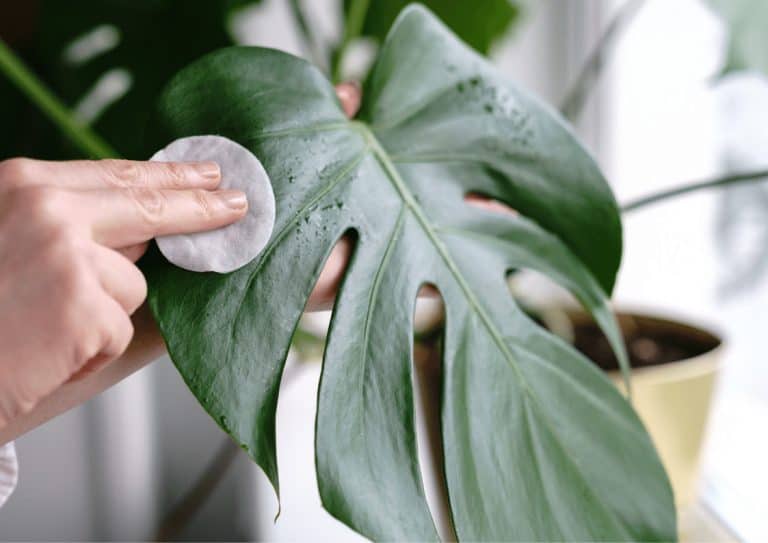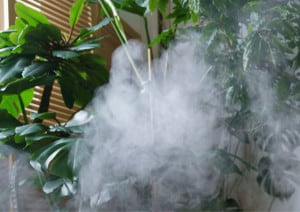Sinus Suffering: Could Your Houseplants Be the Culprit?
- Lakeisha Ethans
- September 26, 2022
If you buy something using the retail links in our articles, sometimes we earn a small affiliate commission. This does not impact the products we recommend.
Anyone who regularly experiences sinus problems knows how annoying and inconvenient they can be. The last thing someone in that position wants to do is expose themselves to more allergens and substances that can irritate their sinuses.
Some houseplants are known to help with air quality, even aiding those with especially sensitive sinuses.
But can they also do the inverse?
Houseplants can certainly cause sinus problems and congestion. This can happen for a multitude of reasons, with primary triggers being pollen from flowers, dust collected on foliage , and mold growth on the soil.
Sure houseplants can beautify a home and make for a more welcoming space, but like most natural things, they can be the source of unwanted allergens. In this article, we aim to help you better understand what factors can lead to sinus problems caused by houseplants and how you can reduce the risk of them becoming irritants.

How can houseplants cause sinus problems?
The most common way houseplants cause sinus problems is the most obvious one, and that’s through pollen production. This is especially prominent in flowering plants or those that secrete a lot of sap.
Pollen grains are very small and light, which allows them to be mobilised and follow your house’s natural airflow. This keeps them afloat in the air and can be easily inhaled by those living in the home, especially when they’re in the same room.
There are a variety of potential allergic and sinus reactions that can occur from pollen, such as urticaria, allergic rhinitis, and constant sneezing.
Another way that houseplants may cause sinus problems is through mold growth on the plant foliage or potting substrate.
As with any host for mold, this occurs due to warm, damp conditions that are not well-attended to. In some cases, mold can also harm a plant, as it feeds off mostly organic material and can even spread to other plants.
Mold causes sinus problems because they form colonies that release spores, just like how plants do. These spores are highly common allergens, leading to eye irritation, nose blockages, runniness, and even itchy and reddish skin. Some species of mold may even be downright dangerous to humans.
In most cases, mold, which is a type of fungus, will grow in the soil of your houseplants due to its dampness, especially in stagnant soil or soil that gets watered very frequently. Sometimes, mold may also grow on rotting or dead organic material from plants, such as branches or leaves.
Finally, houseplants can cause sinus problems because of dust build-up. Like all physical items, dust can build up easily on plants kept indoors when left untouched. This is especially true for those with large, flat leaves that easily collect dust particles and need to be manually cleaned off.
What houseplants should those with sinus problems avoid?
Generally speaking, the worst houseplants for those with sensitive sinuses are plants that are capable of flowering indoors. These plants will always produce sap and pollen, which are the primary cause of these flair ups.
Whether a plant is capable of flowering indoors will very much depend on your climate and the growing conditions that you provide. It might be a bit of a headache but you must research each plant you want to bring into your home, so you know how much pollen or sap it is capable of producing. Doing so can save you a lot of trouble down the line.
You should also be wary of plants that generally produce a lot of sap. In some cases, certain male or female plants will not produce any sap even if their opposite sex does. In this case you simply need to ensure that you choose the right sex of that plant. An example of this is female palms, which are usually safe for those with sinus issues, while male palms must be avoided.
Avoiding plants with fuzzy leaves may also be a good idea. This is because these leaves can easily trap allergens such as dust and sap in ways that are very difficult to clean. With that being said, proper and regular cleaning in non-harmful ways (such as showering plants) to the plant can prevent this issue.
It should also go without saying that plants that cause symptoms of allergies upon contact with your skin or eyes should be considered a risk for sinus problems.
While the reaction may only occur upon contact, the allergens causing the reaction may seep into the air of your house and cause further issues.

How can I reduce the risk of a houseplant causing sinus problems?
The first step in reducing the risk of a houseplant causing sinus problems is, of course, to avoid obvious culprits like flowering plants, sap-producing plants, and plants with fuzzy leaves. But even when doing this, you may still face sinus problems with other houseplants.
To reduce additional risk, you must ensure that mold isn’t allowed to grow on your plant. This can be achieved by ensuring your plant’s pot and soil are sufficiently well-drained.
Choosing houseplants that don’t need extremely frequent watering can be helpful in this regard. After all, constantly damp soil such as those adored by select carnivorous plants is more likely to develop mold.
Some substances can work as mold inhibitors. For example, adding a small amount of apple cider vinegar or cinnamon to topsoil can do the trick however it’s a risky step to take.
Ensure you’re only placing a tiny sprinkle or about a spoonful at most. If your plants are especially sensitive to pH changes adding vinegar is obviously not a wise step to take.
In some cases, the humidity increase caused by the presence of houseplants may also encourage the growth of mold around your home. You can mitigate this with a dehumidifier or by using silica packets and similar moisture-absorbing substances in spots of the house where this becomes a problem.
If mold is not the culprit, your problem may be dust instead. In this case, you should learn how to properly clean your plants, especially larger plants or ones with flat and broad leaves. Regularly wiping down a plant’s leaves or misting them will reduce the dust that settles on their surfaces. Remember to be gentle and not use anything other than rain water or distilled water so you don’t inadvertently harm your plant.
Finally, if all else fails, you can use an air purifier to help filter out allergens in the atmosphere of your home.
If you already have sensitive sinuses, an air purifier is a worthwhile long-term investment, even if you ultimately decide not to continue keeping plants in your home.
Round up
Houseplants can cause sinus problems, especially if they’re flowering plants that produce a lot of pollen. In addition, some plants may produce an excess of wax or other substances that can be allergens for someone with sensitive sinuses. Dust and mold build-up can also be the source of these issues, as mold can develop in too-wet soil, and dust may collect on broad or fuzzy leaves.
Suppose you’re still experiencing sinus problems despite not having any plants that are known for their allergen production. In that case, you should work to prevent mold build-up by ensuring well-draining soil or using a dehumidifier. Air purifiers may also be a worthwhile investment to ensure better air quality when you own houseplants

Lakeisha Ethans
Houseplant Writer
Mother to two humans and hundreds of plant babies. Lakeisha uses her 15 years of experience as a content writer to specialise in simplifying what you need to know to grow and care for all indoor plants.
Similar Posts
Do Flea Bombs Kill Houseplants? (Fatal Flea Fogger?)
Do you need to remove houseplants from a room that is to be smoked with a flea bomb? Or is the flea fogger harmless to plants? Experimental results here...
Do All Monstera Species Get Fenestrations As They Age?
Monstera plants are well-known for their beautiful fenestrations, but when do they occur during the plant's development, and do all species develop them?



